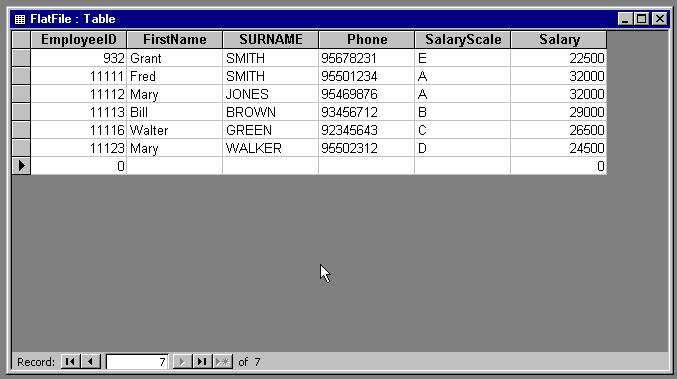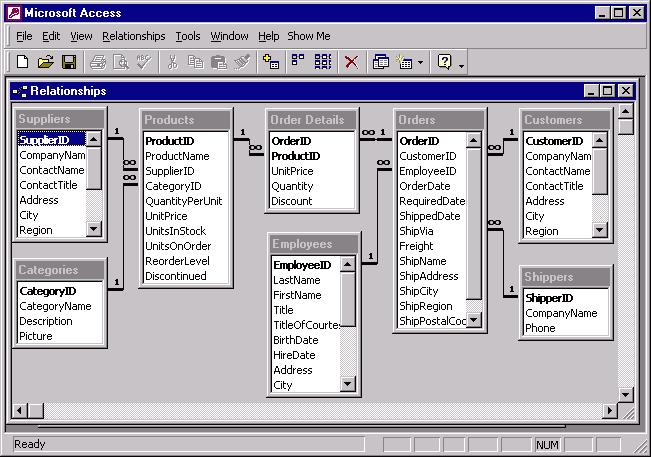Types of Databases
There are several common types of databases; each type of database has its own data model (how the data is structured). They include; Flat Model, Hierarchical Model, Relational Model and Network Model.
The Flat Model Database
In a flat model database, there is a two dimensional (flat structure) array of data. For instance, there is one column of information and within this column it is assumed that each data item will be related to the other. For instance, a flat model database includes only zip codes. Within the database, there will only be one column and each new row within that one column will be a new zip code.

A flat file is a static document, spreadsheet, or textual record that typically contains data that is not structurally related. Flat files are called so because there is little that can be accomplished with the information contained in them other than reading, storing, and sending.
Flat files are typically basic data sets that are used for configuration data storage for applications and programs. The average computer user will not typically see them much. There are basic address book-like examples of a flat file that can be used, but modern users typically desire a more robust and sophisticated method of calling up their information than to rely on the limited capability of a flat file structure.
Flat files are commonly used by and found in database management systems, typically belonging in and organized into flat file databases. A flat file database is really nothing more than an organization criterion assigned to a sample set of flat files.
The Hierarchical Model Database
The hierarchical model database resembles a tree like structure, such as how Microsoft Windows organizes folders and files. In a hierarchical model database, each upward link is nested in order to keep data organized in a particular order on a same level list. For instance, a hierarchal database of sales, may list each days sales as a separate file. Within this nested file are all of the sales (same types of data) for the day.
The Relational Model
The relational model is the most popular type of database and an extremely powerful tool, not only to store information, but to access it as well. Relational databases are organized as tables. A table can have many records and each record can have many fields.
Tables are sometimes called a relation. For instance, a company can have a database called customer orders, within this database will be several different tables or relations all relating to customer orders. Tables can include customer information (name, address, contact, info, customer number, etc) and other tables (relations) such as orders that the customer previously bought (this can include item number, item description, payment amount, payment method, etc).
It should be noted that every record (group of fields) in a relational database has its own primary key. A primary key is a unique field that makes it easy to identify a record.

Relational databases help maintain data integrity and reduce data redundancy.
Data integrity refers to data that is accurate or correct or complete or as up-to-date as possible.
Data redundancy is a data organization issue that allows the unnecessary duplication of data within a database.




